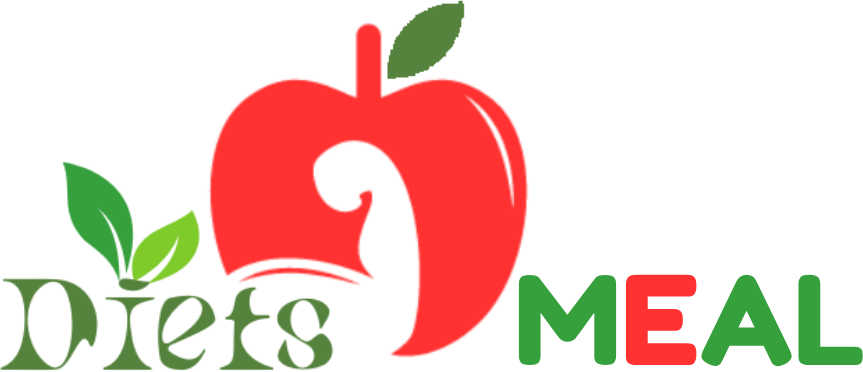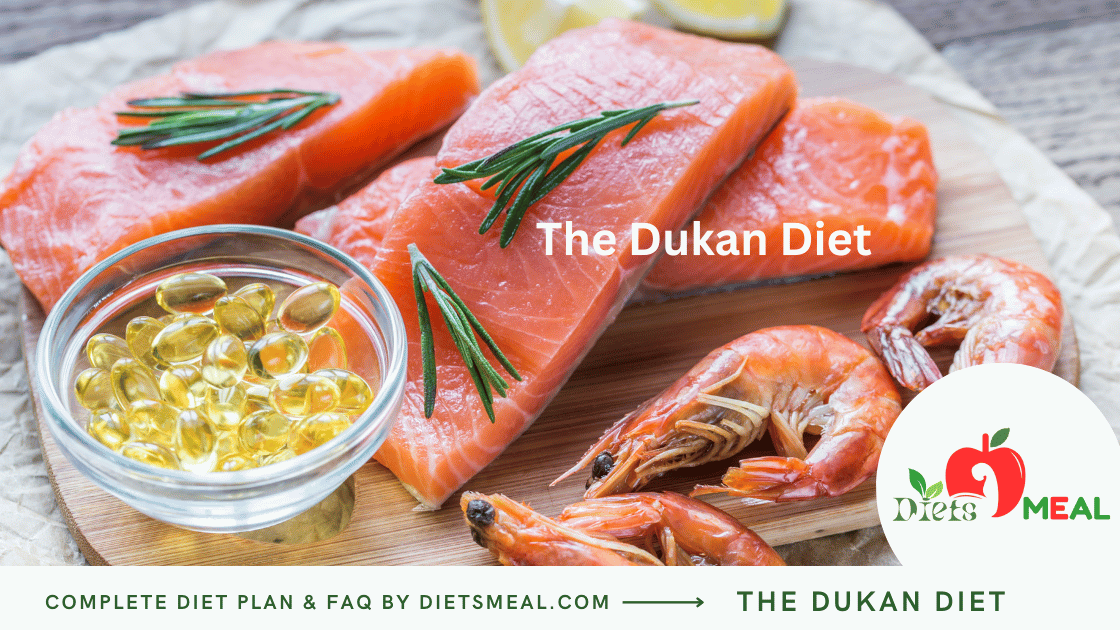Dukan Diet is a four-phase diet intended to help people lose weight quickly and sustainably, using protein and limited vegetables as means for weight loss. Unfortunately, its focus on protein could result in nutritional deficiencies for those living with diabetes or blood sugar issues.
Dieting with low-fat dairy products, nonfat meat and fish products and some vegetables is allowed on this plan; however, fruit and whole grain foods are restricted, leaving your body vulnerable to nutrient deficiencies.
What is the dukan diet?
The Dukan Diet is a high protein, low carbohydrate diet designed to promote weight loss by restricting carbohydrates and fat. Additionally, this plan encourages physical activity and supports a healthy lifestyle with its four phases, two dedicated to weight loss and two to weight maintenance.
The Attack Phase is the initial stage and involves being extremely restrictive, permitting only 100 foods and restricting fat. This phase aims to jumpstart your metabolism quickly while teaching you to manage appetite more effectively.
While the Dukan Diet may lead to weight loss, it should not be undertaken lightly. Due to its extreme restrictions and potential long-term nutritional abnormalities, increased cravings, unhealthy eating behaviors and possible deficiencies such as iron, potassium, vitamins A&D & folate. All these deficiencies could contribute to serious health complications; before embarking on this weight loss plan it is wise to consult a registered dietitian or physician to create an individualized weight loss program tailored specifically for you and your needs and goals.
What is the dukan diet plan?
The Dukan Diet is a high-protein, low-carb diet designed to help people lose weight quickly. The plan emphasizes eating protein-rich foods in order to satisfy hunger while restricting carbohydrates as a means to quick weight loss. Unfortunately, its use may not suit everyone.
The Attack phase of the Dukan Diet allows dieters to consume an unlimited amount of 72 protein-rich foods during this phase, such as lean meats, chicken, turkey, fish eggs and nonfat dairy products like yoghurt, fromage frais quark and skimmed milk.
After you have successfully completed the Attack phase, it’s time for Consolidation. In this stage, gradually introduce other foods into your diet, including starchy vegetables and fruit. Also be sure to drink at least 1.5 litres of water daily and exercise for 20 minutes daily. You could even opt for one “pure protein” day each week with 3 tablespoons of oat bran added into meals!
Are nuts allowed on dukan diet?
The Dukan diet is a high-protein, low-carbohydrate plan designed to promote weight loss. However, its restrictive approach eliminates many foods such as whole grains, fruit and vegetables – which may prove challenging for some individuals to adhere to. Furthermore, lack of fiber may contribute to constipation or other health complications; consequently this diet should not be undertaken by those suffering chronic illnesses.
The initial phase of the Dukan diet, called the Attack phase, typically lasts two to seven days and focuses solely on protein consumption. Dieters may consume unlimited protein-rich foods along with 1.5 tablespoons of oat bran per day in this phase. Rapid weight loss often encourages people to continue with this diet regimen.
But the Dukan diet may not be suitable for people living with diabetes or other blood sugar issues, since it restricts carbohydrates for several days while limiting fiber consumption – both essential components in controlling blood sugar levels and helping protect against heart disease, diabetes and other chronic illnesses. Furthermore, eliminating certain food groups increases risk for nutritional deficiencies like iron deficiency or vitamin C deficiency.
Can you drink coffee on dukan diet?
As part of the Dukan Diet, coffee consumption can be permitted; however, it’s important to remember that it contains high protein and low carbohydrates intake. Studies have proven that higher-protein diets promote weight loss by controlling appetite while simultaneously helping reduce body fat – specifically belly fat accumulation.
At any phase of the Dukan Diet, any type of tea sweetened with no-calorie sweetener is allowed. Tea is full of antioxidants which help burn stored fat and boost metabolism while also being packed full of calcium, magnesium, biotin, folic acid and vitamin C – essential components in an effective weight management plan!
As part of the Attack and Cruise phases of your Dukan Diet journey, during these stages you may consume one tablespoon each of Goji berries, rhubarb with beneficial magnesium levels and 100g (just less than half cup) avocado per day. Salads may also be added for variety. When that doesn’t cut it for you, Jersey Mikes provides delicious high-protein low-carb sandwiches called Power Bowls that fit right in with this diet plan; you can find them loaded with chicken or veggie options!
How to start the dukan diet?
The Dukan Diet is a low-carbohydrate plan designed to help you lose weight quickly. It primarily works by restricting carbohydrates, forcing your body to turn to fat stores as energy sources instead. Furthermore, lean proteins help increase muscle mass and metabolism. This plan includes four phases – Attack, Cruise, Consolidation, and Stabilization; their duration depending on your desired weight loss goals and fitness level.
The Dukan diet’s initial step, known as the Attack Phase, typically lasts five days. During this phase, only proteins such as lean beef, chicken and fish (with no visible fat), liver, reduced-fat ham and egg may be consumed along with small quantities of oat bran.
The Dukan diet restricts many nutrients and may result in vitamin and mineral deficiencies. Furthermore, this diet could exacerbate blood sugar issues for those living with diabetes, while being extremely costly due to its focus on protein-rich foods – many individuals find this diet hard to adhere to over an extended period.
Can you eat nuts on dukan diet?
The Dukan Diet emphasizes eating low-fat, whole unprocessed foods without added salt, sugar or fats, with plenty of water consumed each day for best results. Home cooking meals and daily exercise sessions are highly encouraged during this diet plan that has four phases; two for weight loss while two others aid maintenance of goal weight.
The Attack Phase typically lasts two to seven days and can help people shed eight pounds in that period. You are permitted to consume unlimited lean proteins (like skinless beef, fish and poultry), eggs and low-fat dairy products without exceeding 1.5 tablespoons per day of oat bran as part of this diet plan. Fruits and vegetables other than berries and cantaloupe are prohibited and no nuts may be consumed during this time period.
As part of your Cruise phase, try eating nonstarchy vegetables once every other day and increasing your daily oat bran intake to 3 tablespoons. Additionally, plan one pure protein day each week, as well as practicing lifestyle fitness habits such as taking stairs instead of elevators.
How does the dukan diet really work?
The Dukan Diet is a high-protein plan that limits certain food groups. While initially this diet may help with weight loss, it’s essential that it meets both your dietary and health requirements before making this commitment. A registered dietitian can assist in helping determine if this plan is the best choice for you.
The diet offers many advantages, such as its emphasis on lean proteins and use of oat bran as a source of fiber. Furthermore, it encourages drinking plenty of water daily as well as daily exercise sessions. Unfortunately, its strict rules may prove challenging to abide by; particularly with regard to keeping track of alternating protein days and “cruise” days – making it hard for dieters to stay on plan.
Although the Dukan diet may offer temporary weight loss, its high rate of relapse and nutritional deficiencies increase risk. Furthermore, it could increase heart disease risk. A registered dietitian can assist you in finding a healthier eating pattern to maintain desired weight while improving overall health.
How much does the dukan diet cost
The Dukan Diet was developed by French nutritionist Pierre Dukan as a “weight loss breakthrough” with long-term effects. Divided into four stages and featuring various foods to aid weight loss, its first phase, the attack phase, is extremely restrictive with no carbs except 1.5 tablespoons of oat bran allowed daily; thereafter the cruise phase alternates days of pure protein with days without starches until your target weight has been met.
Dukan Diet promises to alleviate hunger and cravings; however, its limited carb consumption could potentially lead to nutritional deficiencies and health risks, according to some experts. Furthermore, its low calorie count makes it challenging for long-term compliance, and restrictions on certain vitamins may reduce overall intake; furthermore, its emphasis on high amounts of protein intake could increase your risk of kidney damage or gout – so before beginning this diet it is highly advised that one consult a registered dietitian first.
How Much Weight Can You Lose on the Dukan Diet?
The Dukan Diet is a four-phase program designed to help dieters shed excess weight safely. The emphasis is on lean proteins, with limited vegetables allowed, but certain fats restricted. Hydration levels must remain adequate to support normal metabolism and ensure electrolyte balance is not disturbed.
The Attack Phase usually lasts for two to seven days and may lead to some weight loss, while in the Cruise Phase dieters cycle between all-protein days and those including 32 nonstarchy vegetables as part of their meal plan, along with getting 3 tablespoons daily of oat bran as a daily serving.
An effective weight-loss plan requires discipline over an extended period of time, according to Weekley. Without one in place, weight loss goals may never be realized.
Such restrictive plans may also lead to nutritional deficiencies, which is especially risky for active individuals who take prescription diabetes drugs like insulin or oral diabetic medication. They may also result in additional side effects like fatigue, nausea, vomiting and constipation.
Though diets that focus on lean proteins and nutritious vegetables may offer benefits, you are better served achieving those same benefits by leading a more sustainable lifestyle, creating an achievable daily calorie deficit by counting calories and eating whole food combinations of lean proteins and vegetables to create long-term weight loss.

